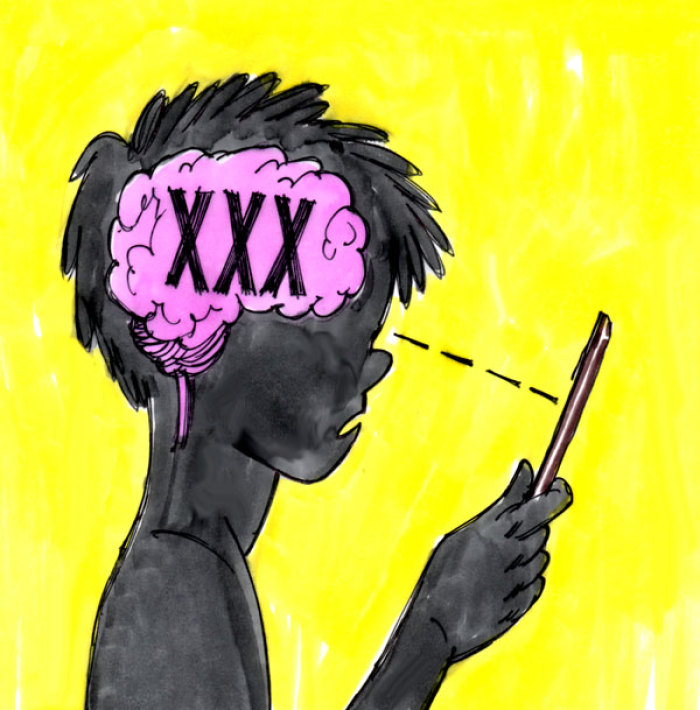Feminist Writer Denies the Science of Porn Addiction: 'Conservative Christian Propaganda'

As scientific evidence continues to mount that porn addiction is real, one writer is ridiculing the notion, charging that secular anti-pornography efforts are rooted in "conservative Christian propaganda."
Last week, Salon magazine feminism reporter Amanda Marcotte highlighted the case of Christian Hine, a South Carolina man who pled guilty to multiple sexual crimes, including possession of child pornography, to argue that porn is not addictive. In an effort to get his sentence reduced, Hine's attorney argued that his client's porn addiction fueled his actions.
In response to anti-porn arguments from campaigns like Fight the New Drug, which often warns against the addictive power of feel-good brain chemicals like dopamine and how repeated porn use rewires the brain, Marcotte asserts that "the notion that feeling good is suspect should be a reader's first clue that this site is dealing more in conservative Christian propaganda."
"In the Christian conservative circles, which are dominant in South Carolina, the idea that pornography is 'addictive' has become a widely accepted truism. The only problem is there's no real evidence for the idea that porn is actually addictive," Marcotte continued, citing a 2013 research study co-authored by Nicole Prause, a scientist who started the sexual biotechnology company Liberos in Los Angeles, California.
Prause rejects the notion that porn can become an addiction, and instead blames high sex drive, social shame, and compulsivity as the drivers of problematic sexual behaviors.
But Daniel Weiss, founder and president of the Brushfires Foundation and former senior analyst for media and sexuality at Focus on the Family, is not buying it. (Disclosure: this reporter is a member of the board for Brushfires Foundation.)
"The sexual revolution will always have its apologists who attack anything that threatens the death grip this destructive movement has on culture. It is nothing more than blind ideology and rejection of established credible science," Weiss said in an interview with The Christian Post.
"Concern over the harms of pornography are not reserved to Christian conservatives," he added, "Gail Dines, Andrea Dworkin and Naomi Wolf have all written extensively about the corrosive and degrading nature of pornography. They are all extremely liberal feminists."

In fact, Dines, a sociology professor at Wheelock College, wrote an article for The Washington Post back in April outlining porn's harmful effects: "No matter what you think of pornography, the science [behind porn as a public health crisis] is there."
Dines, who authored Pornland: How Porn Has Hijacked Our Sexuality, further noted that after four decades of peer-reviewed research, "scholars can say with confidence that porn is an industrial product that shapes how we think about gender, sexuality, relationships, intimacy, sexual violence and gender equality — for the worse."
Although not on the same page as Dines on many issues, Arina Grossu, director of the Center for Human Dignity at the Washington D.C.-based Family Research Council, concurs.
"Porn's highly addictive nature is just one of many detrimental effects that give it the deserved description as a public health crisis," Grossu told CP on Friday, adding that a simple internet search reveals abundant evidence saying as much.
"In MRI and other brain scans, the brains of compulsive pornography users look just like the brains of alcoholics and drug addicts, showing the same reward centers (ventral striatum) lighting up ... those who choose to ignore the actual science, evidenced by MRI and other brain scans, want to trade out reality for a 'porn-defending' ideology, because the reality is inconvenient," she added.
Even one former Playboy cover model is joining the chorus of voices contending against the pornography scourge.
In a Thursday op-ed in The Wall Street Journal, Pamela Anderson, together with celebrity Rabbi Schmuley Boteach, argue that no further evidence is needed to show the addictive, corrosive nature of porn than the repeated public humiliation of former congressman Anthony Weiner, who was recently caught yet again sending lewd photos to strangers.
Likening it to hard drugs, Anderson and Boteach write that because smut is now so ubiquitous, "the incidence of porn addiction will only spiral as the children now being raised in an environment of wall-to-wall, digitized sexual images become adults inured to intimacy and in need of even greater graphic stimulation."
"They are the crack babies of porn," Anderson and Boteach said.




























